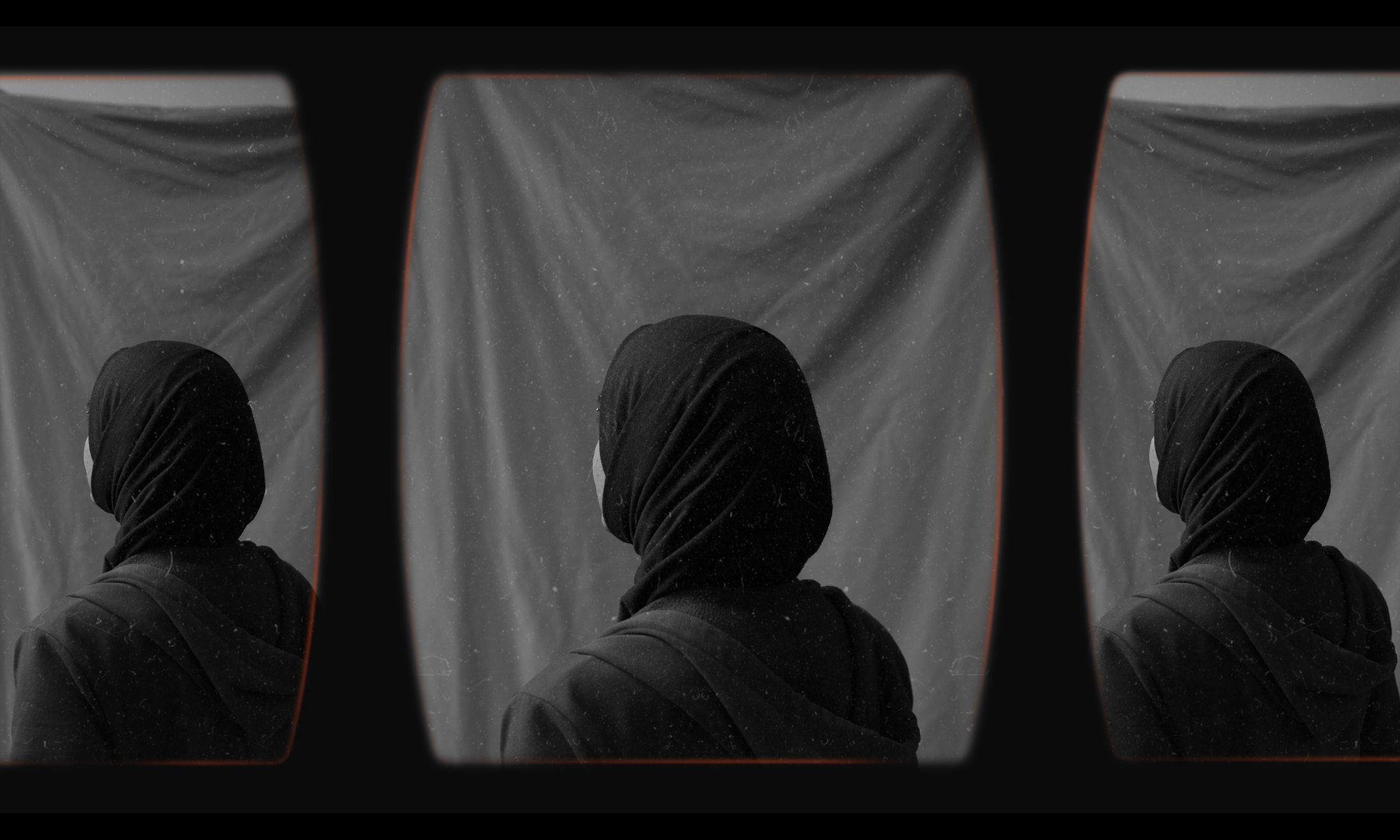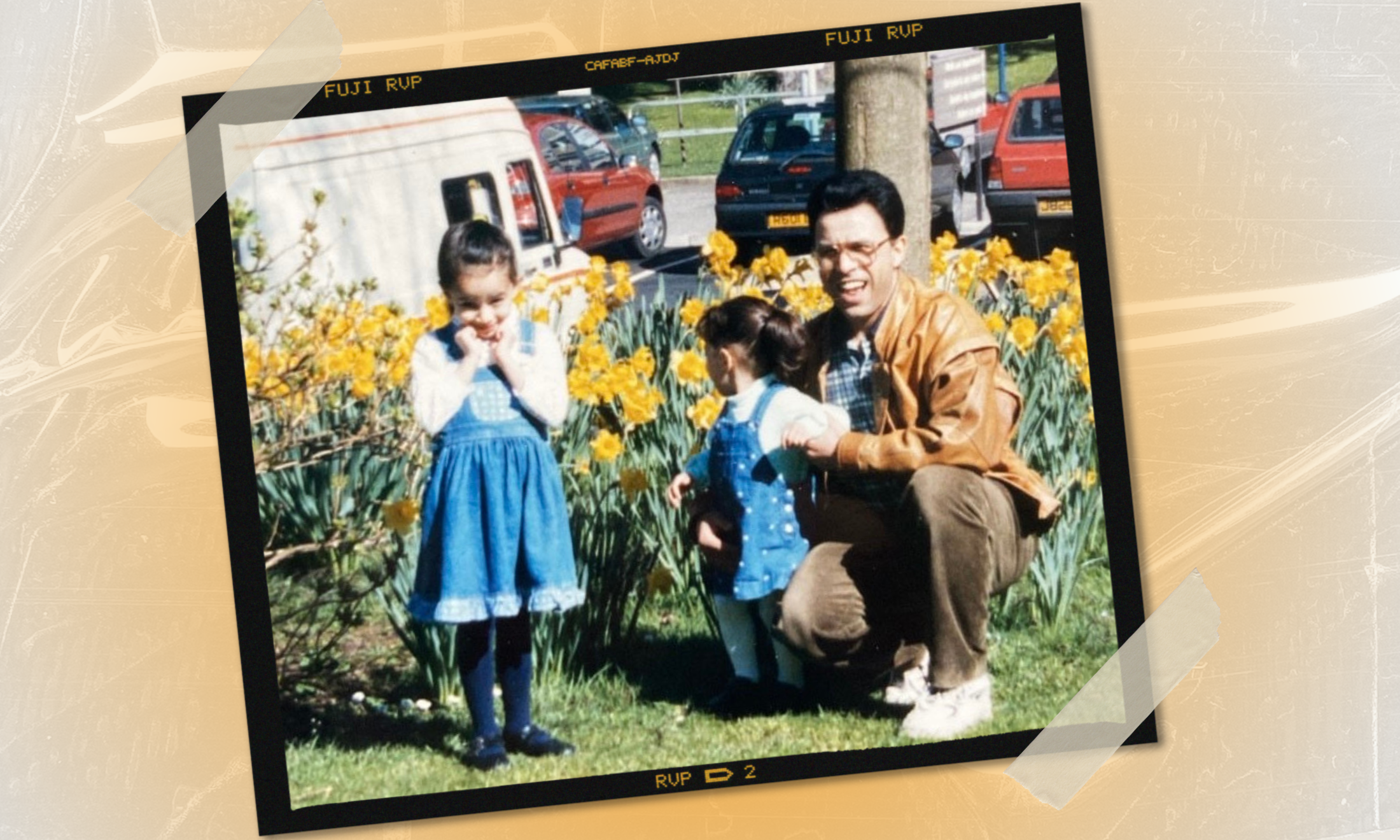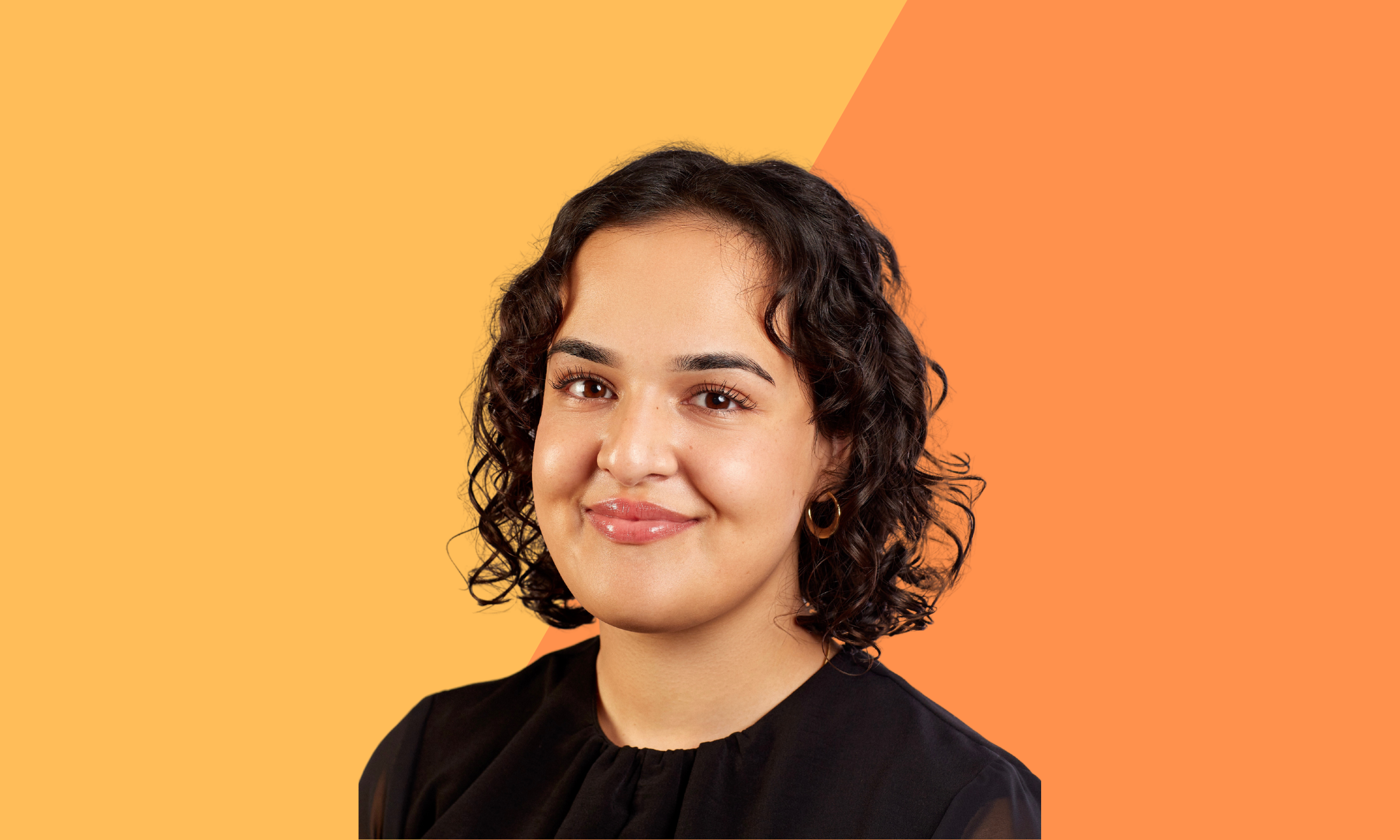
Illustration by Rama Duwaji
On my morning commute on 28 November, I stepped onto the train platform, tweeting in a rage. Robert Peston, a political commentator with an eponymous flagship show, had claimed that Britain has traditionally been “a beacon of tolerance and understanding”. Perhaps he genuinely felt that this was an accurate description of the country he lived in. But the Britain I live in is a complicated place where hope has always been laced with poison.
I live in the Britain of MEPs from the far-right British National Party (BNP) and “Rivers of Blood”. The country of the Smethwick election campaign that won with the tagline “if you want a nigger for a neighbour, vote Labour”, but also the Britain of the Battle for Cable street, where ordinary people come together to challenge fascists. But still its the Britain where your dad might be deported even when he has the right to remain; where Twitter users comment with the singular word “good” under a post about people drowning trying to escape conflict by crossing the Mediterranean Sea.
How could Robert Peston and I have inhabited two such different places under the banner of Britannia?
An ICM/Avaaz poll released the day before the 2019 election was a sobering read, illustrating just how pervasive prejudiced attitudes are. Six in ten (60%) people who voted for the Conservative party in the 2017 election agree that “Islam threatens the British way of life”, compared to 35% of Labour voters. Worrisome perceptions about Jewish people also appeared to be prevalent. Among 2017 Labour voters, one in five agree that “Jews have disproportionate influence in politics”, compared to one in seven 2017 Conservative voters (20% compared to 14% respectively).
No polls were carried out in relation to anti-black racism in the run-up to the 2019 election. But, research carried out in 2017 by NatCen and The Runnymede Trust on Brexit voters found that 44% of those surveyed believe that “some races are born harder working than others”, which reflects tropes associated with black people. After slavery was abolished, slave owners branded former slaves as being cursed with the “negro disease” of “laziness” for not wanting to work for free as “apprentices”.
The increase in hate crime following the EU referendum in 2016 and the terrorist attack in 2017 show that campaigns and incidents can activate prejudicial beliefs – but these beliefs already exist. Hatred has always been here, yet in the run-up to the election on 12 December we saw a lot of “whataboutery”. Any comment on Twitter about antisemitism in the Labour party would get an instant bounceback of someone claiming it was “made up” or an “exaggerated smear”. A Guardian columnist, the head of a large talent agency and a BBC flagship host all made comparisons between Jewish people and all other minorities, seemingly an anonymous block, who would, apparently “never be treated like this”. At a time when we needed listening and solidarity, there was little that cut through the noise.
To top it off, the BJP (Bharatiya Janata Party), India’s ruling political party, had an overseas affiliate organisation spreading disinformation in seats where there was only a tiny margin between the Labour and Tory candidate, aiming to set Muslim and Hindu voters against each other to secure a Conservative win. In this election campaign, much like the Brexit vote in June 2016, we were shaken clean of decades of delusion like an excitable child with an Etch A Sketch. Politicians were willing to stir tensions between minority groups for political gain. Divide and rule was in full swing.
How did we get here? On 11 December, the eve of the election, hope hangs palpably in the 6°C air, keeping the crowd warm and buoyant. The lapels of winter jackets are adorned with radical badges and beers are in hand. It is the last Labour rally before the 2019 “Christmas” election and the queue to get inside snakes for metre after metre with (mostly white) people of all ages. I can hear the chants of “Tories out!” and “Oh, Jeremy Corbyn” as soon as I step through the ticket barriers at Homerton station in East London. The crowd is punctuated with “Stand up to Racism” signs.
I stop when I spy two women of colour holding a sign. I ask them what this election cycle has been like for them. Sisters Mandeep and Anoop have enjoyed knocking on doors in Kingston but were sad to read on Twitter about the abuse faced by gal-dem opinions editor Micha Frazer-Carrol in Battersea. Without hesitation, they bring up the one downside of the election for them –- the media coverage. The fake news story claiming that a Labour activist had punched a Tory advisor, that was then shared on social media by some of the country’s leading political journalists such as BBC’s Laura Kuenssberg and ITV’s Robert Peston had eroded their faith in “big media”. “The people in power control what narratives are perpetuated,” Mandeep tells me.
Further up the line, six members of the Queen Mary Labour Society reiterate the same points as Anoop and Mandeep. The door-knocking was exhausting but tonight they are energised. One student from Spain has been campaigning even though she couldn’t vote herself. “I’m hopeful,” she tells me. What do they think of the media?
“In desperate need of a restructure. News needs to be [about] what matters to people, not billionaires.”
The BBC, as our state broadcaster, is committed to due impartiality in all its output to maintain trust. Striking this balance is not easy, particularly during an election, and the BBC is used to getting complaints about its coverage being politically biased. The average amount of complaints in an ordinary fortnight is fewer than 10,000, but this election was different. The BBC received a record 24,000 complaints in just 2 weeks, between 11 and 24 November. Over 17,000 were related to specific programmes, and the tally includes complaints from Labour and Conservative supporters about news coverage.
Although the BBC director general Tony Hall has brushed off these complaints as “conspiracy theories”, the Guardian reported that some journalists privately fear that a number of errors during the campaign have eroded public trust. Mistakes made during the election include the BBC News at Ten editing out the audience laughing at Boris Johnson during a Question Time appearance, BBC News using the wrong video clip of Boris laying a wreath at the Cenotaph and Channel 4 issuing an apology after misquoting Boris in the subtitles of a video clip. Boris was able to dodge facing political bulldog Andrew O’Neil but even then, his most difficult interviewer would have been Boris’ former employer at The Spectator. Phillip Schofield and Holly Willoughby’s interview with Johnson spawned 150 complaints to Ofcom in 25 hours, for using an alleged softer interview style with him than they did with Labour leader Jeremy Corbyn.
Research by Loughborough University found that newspaper coverage was twice as hostile to the Labour party in 2019 as it was in the 2017 election. Labour accumulated very high levels of negative coverage during every week of the campaign, which peaked in the last two days before the polls. The study found that negative newspaper coverage increased towards every opposition party in the week before the election, while negative coverage about the Conservatives halved. None of this inspires faith in the media.
Worse still, the people of colour I spoke to at that final Labour rally felt that some media outlets were conduits of division between groups, instead of holding leaders to account.
“The media did a great job at making people with similar lived experiences forget that – including Indian Hindus. I’m mad about it,” another attendee called Radhika tells me. “I think coverage of the election pinned forms of racism against each other like some game show to find out which would win. There are no winners here. Racism is structural. If one group experiences it, we all do.”
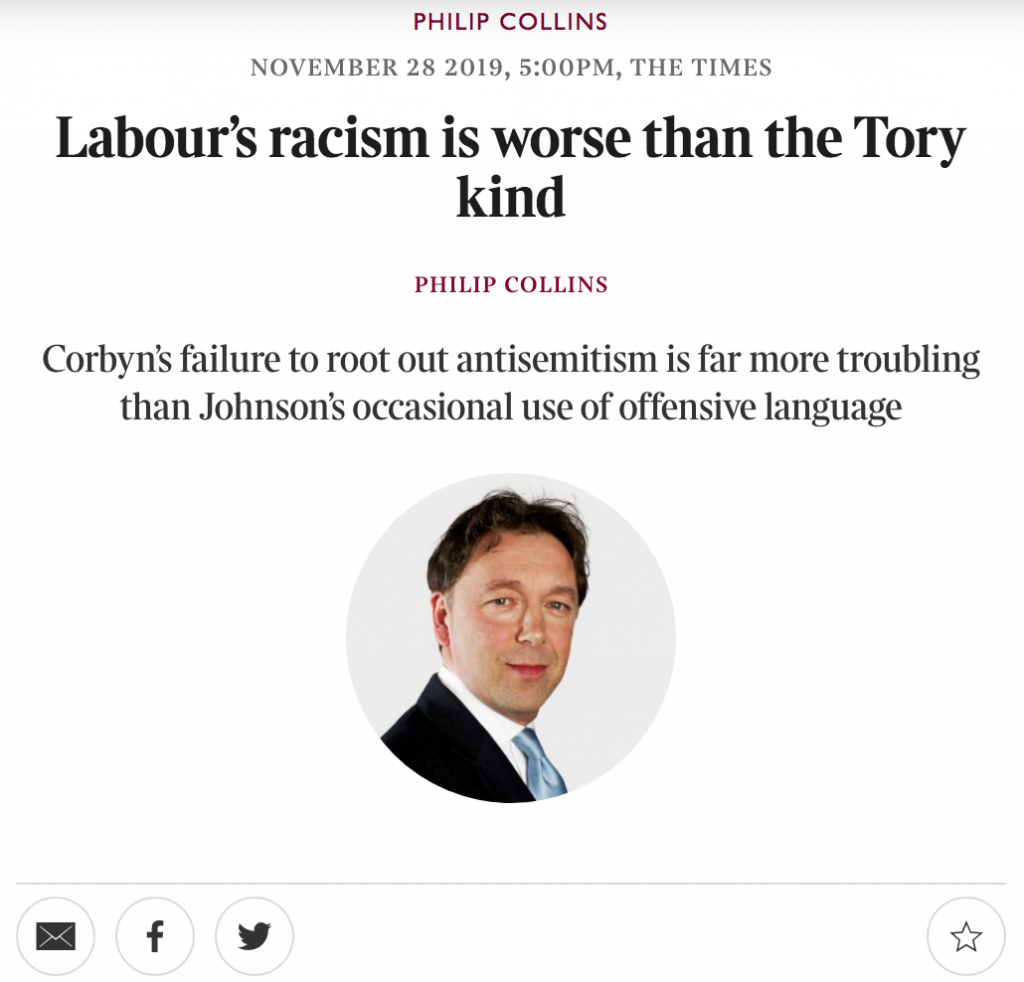
Philip Collins, columnist for The Times, pits different racisms against one another
Some media outlets, such as Times columnist Philip Collins before the election result, and Melanie Phillips following the election result, argued that antisemitism was worse than Islamophobia. Rabia Mirza, a communications professional who is Muslim, called this coverage “an unhelpful hierarchy of what constitutes racism”.
Lizza Dauenhauer-Pendley, Senior Consultant for a Human Rights organisation, who is Jewish-American and lives in Scotland, agrees. “What a load of race-baiting!” she tells me. “From Jews to Indians and Pakistanis to Muslims and Eastern European immigrants… We were all used to further candidates’ agendas and it created mass divisions within the left and the right. It created issues and prejudices that will impact our country and its people for years to come. I fear the impacts honestly, especially as the UK left seems to be splintering.”
This election campaign was painful for many of us. Lizza and her family are now considering a move to Glasgow, since she has “seen a swastika drawn over the bus schedule at a bus stop” right by her home and “another on the sidewalk”. The election of an antisemitic MP made the move a real consideration. Natasha Dhumma, an organiser from Indians Against Tory Division, reinforces this. She comments that “Everyday, someone’s identity was used for political gain, it was appalling. Self-appointed ‘community leaders’ [were] seizing opportunities to shoehorn themselves into the debate without any interest in tackling racism or representing the range of views within their community, with the media selectively covering some views whilst ignoring others.”
This selective coverage caught the attention of Rabia. “The debates were heavily centred on individuals rather than the issues. In left independent [new] media [I found that the] coverage was too London-centric. One thing I found astonishing was how anti-blackness has not been on the agenda at all,” she says.
Nadine White, a news reporter from the Huffington Post also noticed that issues of anti-black racism and the feelings of the black community did not gain much media attention in the run-up to the election. The Windrush Scandal, where people primarily from the Caribbean were detained, deported and denied their legal rights, did not feature as a discussion point. She addressed this with specific coverage to fill the gap.
“The interests and welfare of black people is not seen as a priority across parts of the mainstream. This has a lot to do with the lack of diversity in newsrooms – of all of the ethnicities, black journalists are the least represented at just 0.2%,” she tells me.
“More black journalists are needed in senior positions. Senior media practitioners are extremely influential; they make the important decisions and ultimately help to determine what is reflected and how it is reflected – and also what isn’t.”
Nadine emphasises the need to consult communities so you can report on what matters to them and get it right. “When it came to Boris Johnson’s comments about ‘piccaninnies’ and ‘watermelon smiles’, I went out and spoke to black people on the streets to get a sense of the views they held. It is seldom that journalists consult and, as a result, careless, inaccurate and offensive stories are produced which alienates people from certain communities.”
Lizza agrees, saying that “the media coverage exposed some serious gaps in public knowledge about various ethnic groups and religions. Did anyone hear the people who thought the Chief Rabbi was akin to our pope?”
Radhika is worried about the future relations between groups; she broke down a few times during our conversation as we discussed the future of the UK. “This election made me fearful of the divides in migrant communities – that divide and rule has worked a treat and that the solidarity I wish existed between us all is going to take more than six weeks to untangle and fix.”
The experience of fear, during and following this election is a shared experience across minority groups. So why has this not instinctively brought about solidarity?
It is often instinctive for victims of racism to focus on their own experiences and have less of an understanding of other forms of racism. Racism exists and impacts different groups in different ways and to move forward in good faith we need to actively learn about the histories of ethnic minority groups outside of our own. Joanna, a cofounder of campaign group Jews against Boris, sees solidarity as vital to truly anti-racist organising.
“Antisemitism is complex, highly connected to other forms of prejudice and a product of particular societal forces,” she tells me. “To eradicate antisemitism in Britain, we need to do the hard but necessary work of understanding and undoing all forms of racism and colonialism.”
Postwar anti-racist organising in the UK has always been part of left-wing movements. Marxism was a useful framework in a postcolonial context – often the only popular ideology calling for liberation within and across nation-states and empires. Political blackness, which mobilised people of African and Asian descent under one banner from the 1960s-1990s, owed some of its radical politics to this framework. Anti-racism is still seen through the prism of these movements to a certain extent, which does not leave an obvious space for organising against antisemitism in left-wing, anti-racist movements.
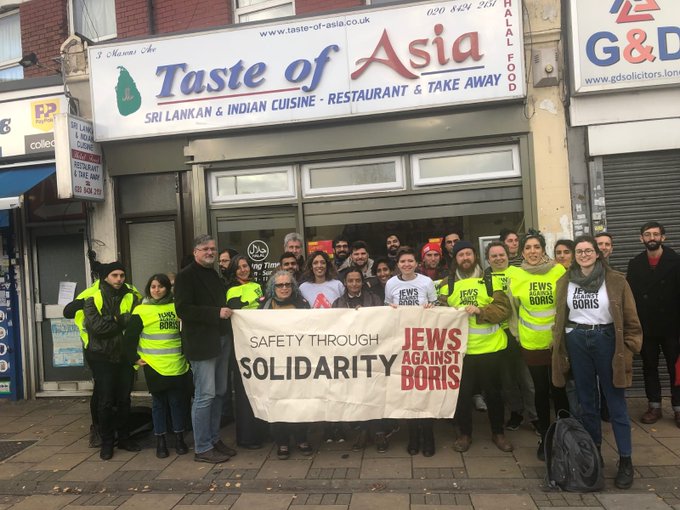
“Part of the reason the issue of antisemitism reached such a crisis point in this election was because the left broadly lacked an analysis of antisemitism which would have allowed them to respond to accusations in an appropriate and principled way,” Joanna says. This, and the fear of a Boris Johnson-led government, resultws in some on the left denying or playing down concerns of antisemitism. Lizza saw this play out with her local SNP candidate, Neale Hanvey, who was axed from the party for making an antisemitic post on social media, and with her peers, who supported Jeremy Corbyn.
“I felt betrayed by many ‘leftist-liberal-anti-fascist’ white non-marginalised friends. They defended Corbyn relentlessly and refused to listen to the pain of vulnerable/affected populations such as my own. I understand that UK voters were stuck between a rock and a hard place. As a liberal and progressive Jew, I was troubled by segments of my own Jewish community. However, I couldn’t help but think that in the end, when faced with a Johnson vs Corbyn choice, we needed to choose Corbyn [but] it made and makes me feel like a traitor,” she tells me.
Equally, divergent social experiences and a lack of contact between different minority groups is what likely led to statements such as “no other minority would be treated like this”. As Yair Wallach, Senior Lecturer in Israeli studies at SOAS pointed out in a useful Twitter thread, “antisemitism in the UK relatively rarely manifests in discrimination in getting a job, or police brutality. It primarily manifests in discourse and representations, on social media or in real life”.
Anti-black racism and Islamophobia lead to stark inequalities in schools, universities, the workplace and criminal justice system. If we are to unify to end all forms of racism, we need to acknowledge what is shared about our experiences and what is not. Whiteness will need to be complicated – Gypsy and Traveller communities have worse outcomes than black boys in education, for example. Access to the privileges of “whiteness” for white Jewish people and Gypsy and Traveller communities is conditional on them suppressing certain aspects of their identities. Racism is complicated.
A truly anti-racist movement will consider these experiences rather than deny them. But it will also focus on how racism works and affects us so we can dismantle it, not identity alone.
Rabia thinks we can learn from the positive aspects of political blackness to help guide us into the future. “I think we need a re-emergence of political blackness. Not the word itself, but a concept that unifies anti-racist struggles,” she tells me. “I know black people were let down [in past movements] by other minorities because of anti-blackness and dropped the ball when it came to solidarity. But I think going forward, political blackness by another name needs to come back – to build unity with one another whilst still respecting our unique differences. And we need to build solidarity offline and outside of London.”
Joanna from Jews against Boris thinks the way forward is increased cross-community conversations to build solidarity. “Firstly, we need to listen to each other across communities with empathy and good faith”, she explains. “Out of this listening we need to build an analysis of oppression that understands how racism, antisemitism, sexism, transphobia, ableism etc intersect in Britain and globally. Joanna says. “Secondly, we need communities to show up in defence of each other. We need to be willing to take risks and provide material resources for each other where we can”.
Similarly, Lizza tells me: “We are not the same and it’s ok – it’s even good we are not, but we need the tools to embrace this”. She explains that, “We need to recognize our powers and privileges in a real way, not just semantically. We need humility, accountability and to take responsible action to make things different.”
This election, I decided to take my own personal act of resistance – I called my mum twice to remind her to vote. In 55 years she had never cast a vote, so I took the time to explain to her where and when she could cast her vote, and that it couldn’t be done online. As I stepped into the polling booth myself, I was unexpectedly barraged by emotions. I had voted twice before. The first time was 2010 and I had voted by proxy, pouring over the manifestos in a Peruvian hostel, desperate to get it right on my first try. Sadly I’d voted Liberal Democrat.
The second time was in 2017 and I voted by postal. I sat tipsily surprised as, surrounded by centrists in a country house, the polls had been proven to be a little skewiff and parliament looked to be hung. This time, in 2019, I voted for something that I knew had serious problems.
I had lost any faith that most media outlets cared about me or people like me or my family. I had lost faith that the party in government cared about me or my safety. But I still had faith in a project that promised to invest in the NHS – the service that had saved me when I was 17, the project that would invest in the welfare system that supported us when we had less, the project that would be honest about the history that brought me and my family to these Isles in the first place.
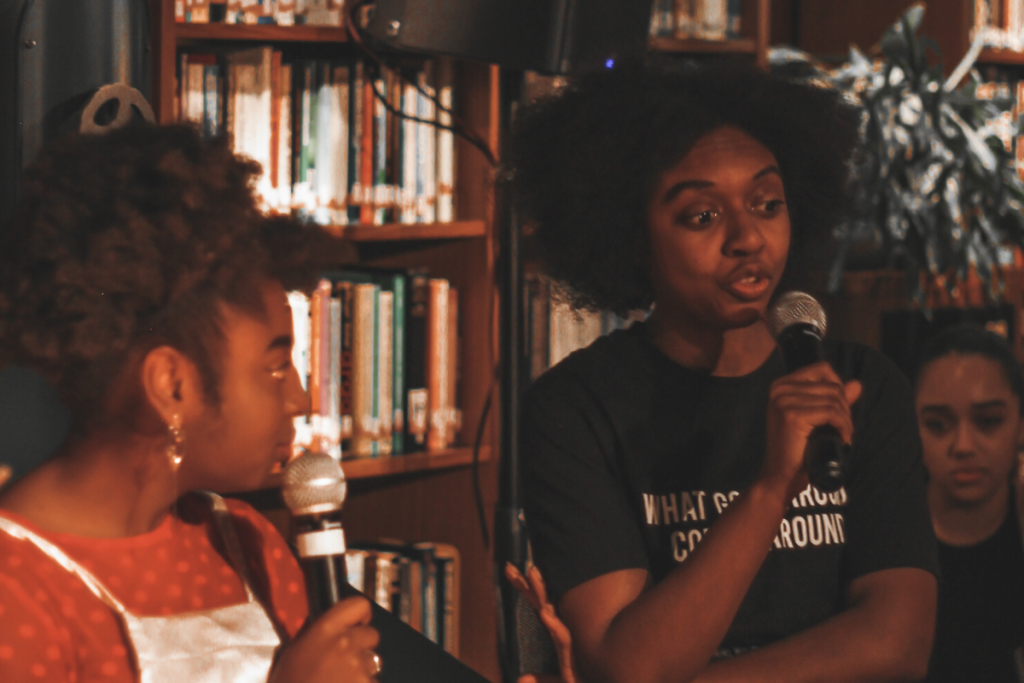
When the exit poll was called I ordered another drink at the bar and then stepped on stage. It was the gal-dem election all-nighter and I was up. I talked about the need for resistance. When I woke up the next morning and reality hit, I rolled over as whimpers turned into cries, and then swiftly threw up in the toilet. Later that day, I went to that Tate Modern gallery to escape, only to be stood next to two young people who were doing the “ok” white power sign and trying to capture it with Olafur Eliasson’s work as their backdrop. It will be a long five years and resist we must.
As I meditate on the past few weeks, something Joanna said in our conversation acts as a useful motivating message for the way forward: “We are willing to commit ourselves to the struggle for freedom for all people, armed with ancestral knowledge, boldness, ruach (spirit) and excellent snacks.” The election campaign and coverage was divisive but we don’t have to stay divided – solidarity in struggle is the only way out of the darkness of this election period. As the New Year approaches, let’s all make a resolution to listen, learn and show up for each other. We can’t fight racism alone, separated in the different silos of our communities: we have to do it together.

